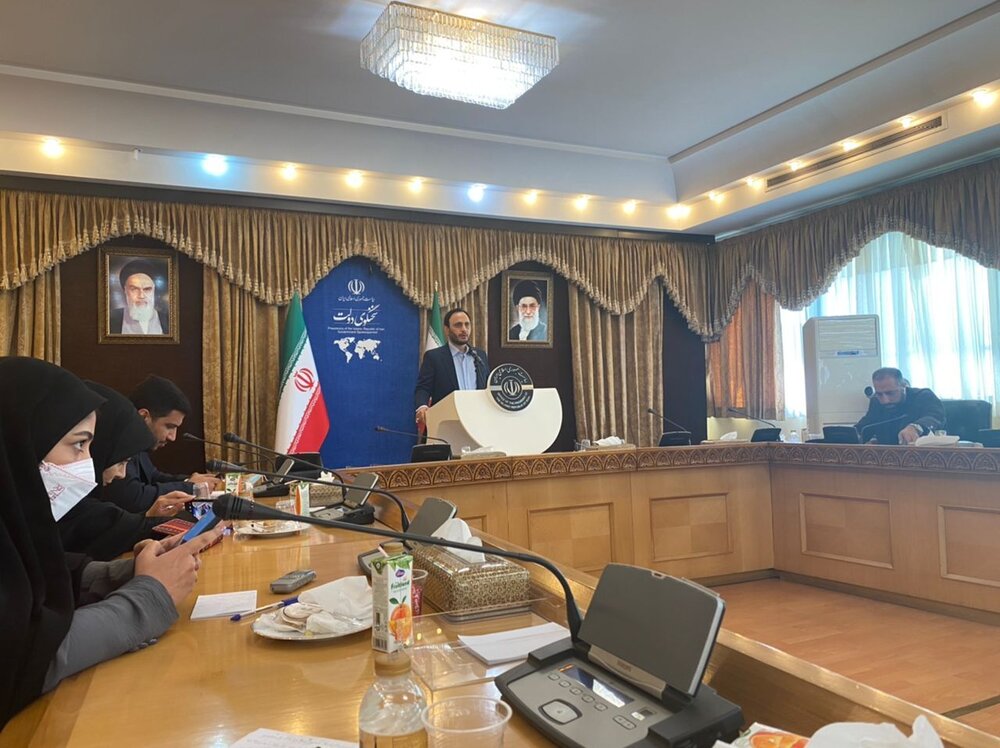TEHRAN – The spokesman for the Iranian government, Ali Bahadori Jahromi, has said that Tehran is continuing talks to reach an agreement on reviving the 2015 Iran nuclear deal.
“Talks over reviving the deal continue and the other side must abandon its excessive demands because a constructive path has been trodden,” Bahadori Jahromi said in a presser on Tuesday.
He added, “Four issues have been followed… which include guarantees, verification, sanctions removal, and the closure of political allegations about safeguards issues. The Islamic Republic of Iran has not left the talks and will not leave the talks.”
In August, Jahromi emphasized that Tehran mistrusts Washington and that the Iranian nation has never forgotten the U.S.-led coup in 1953.
To commemorate the 69th anniversary of the 1953 coup, which was orchestrated by American and British intelligence agencies against the government of Prime Minister Mohammad Mosaddeq, Bahadori Jahromi wrote on Twitter, “Three lessons of the 28 Mordad coup d’état remain forever in the minds of the Iranian people and are the criteria for Iranian politicians’ decisions.”
The official said, “A strong and independent Iran is what the U.S. is frightened of.”
He said, “Trusting the United States in international affairs is pointless, and the approach to deal with this country should be with power, dignity, and adequate assurances.”
On August 19, Nasser Kanaani, the spokesperson for the Foreign Ministry, also said the U.S. has a dark history of meddling in the domestic affairs of sovereign nations. He cited the U.S.-backed coup in 1953 in Iran as an example of this dark history.
“The U.S. administration holds the record for interfering with, attacking militarily, and overthrowing independent states and governments.”
During his weekly press conference on Monday, Kanaani also said one of Iran’s primary goals in the nuclear talks is a complete removal of sanctions on the Iranian nation and government.
Kanaani stated that Iran had contributed to the talks to resurrect the nuclear deal, technically known as the Joint Comprehensive Plan of Action (JCPOA), and was awaiting the U.S. response.
The Foreign Ministry spokesman compared the attempts to resurrect the JCPOA to a marathon, saying that Iran took appropriate steps and presented its views to the European side in order to defend Iran’s interests with a happy ending to the process.
Kanaani stated that a deal is possible if the opposite party has the political will and acts constructively.
Regarding the Europeans’ need for Iran to assist in resolving the energy crisis, Kanaani stated that Iran is an important supplier of energy and has maintained its market share despite sanctions.
However, if an agreement can be reached in Vienna, Iran might be a possible provider for European countries to meet their energy needs, according to the spokesman.
“Iran will be able to meet a bigger part of EU energy needs if sanctions are lifted,” Kanaani stated.
After a weeklong evaluation of the U.S. response to earlier Iranian views on the EU final text, Tehran submitted its responses to Washington via the EU coordinator for the talks in Vienna over reviving the 2015 Iran nuclear deal.
The U.S. provided an early assessment of the Iranian response this time around, describing it as unconstructive, a position that has been perceived in Tehran as lack of seriousness on the part of the U.S.
“The submitted text has a constructive approach with the goal of finalizing the negotiations,” Kanaani said of the Iranian response.
The United States has described the Iranian response as unconstructive. But Iran says the U.S. needs to make a political decision in order for the Vienna talks to result in an agreement.
Related posts:
Views: 0
 RSS Feed
RSS Feed

















 September 7th, 2022
September 7th, 2022  Awake Goy
Awake Goy 
 Posted in
Posted in  Tags:
Tags: 
















